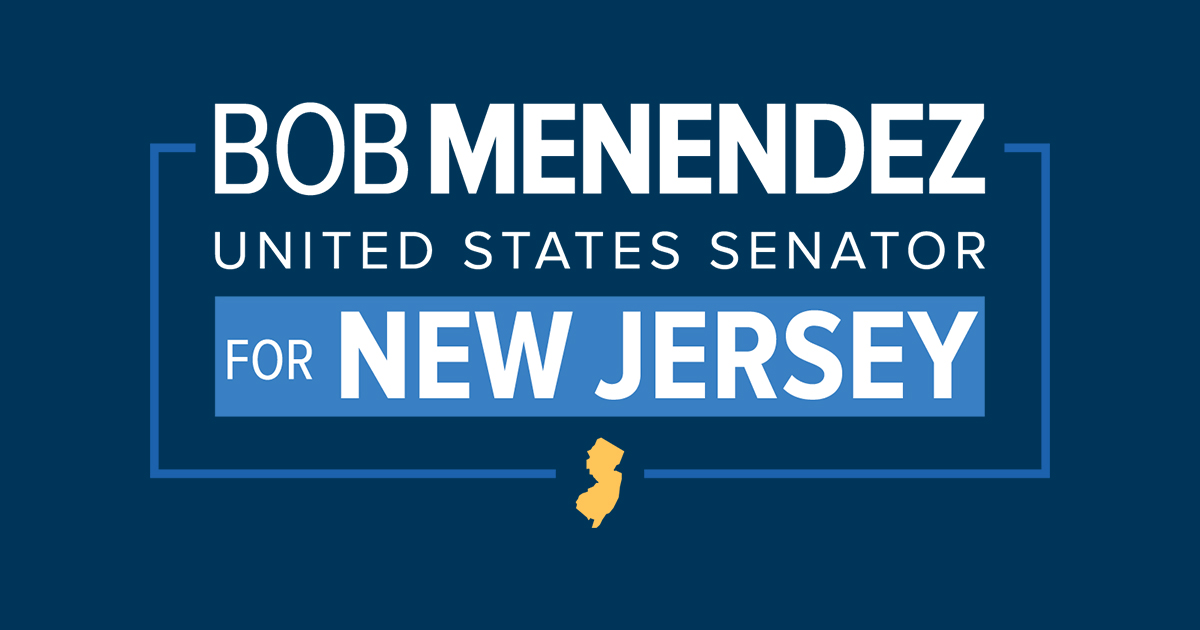Source: United States Senator for New Jersey Bob Menendez
WASHINGTON – U.S. Senator Bob Menendez (D-N.J.), Chairman of the Senate Foreign Relations Committee, today delivered the following remarks at this morning’s Committee hearing entitled “China’s Role in Latin America and the Caribbean.” Testifying before the Committee on the first panel were Ms. Kerri Hannan, Deputy Assistant Secretary for Public Diplomacy, Policy, Planning, and Coordination for the Bureau of Western Hemisphere Affairs, U.S. Department of State; Mr. Peter Natiello, Senior Deputy Assistant Administrator, Latin America and the Caribbean Bureau, U.S. Agency for International Development; and Mr. Andrew M. Herscowitz, Chief Development Officer of the U.S. U.S. International Development Finance Corporation.
Testifying before the Committee on the second panel were Ms. Margaret Myers, Director of the Asia and Latin America Program, Inter-American Dialogue, and Dr. Evan Ellis, Senior Associate, Center for Strategic and International Studies.
CLICK TO WATCH
“China is aggressively all over the hemisphere,” Chairman Menendez said, raising concerns over the country’s use of everything finance to fishing to technology – even vaccine access – to grow its influence. “In the face of these challenges, the United States can’t stand idly by. We must do more to compete in the region. And we have to stop taking our own hemisphere for granted.”
Find a copy of Chairman Menendez’s remarks as delivered below.
“With authoritarian regimes threatening freedom, prosperity and democracy in the Western Hemisphere and around the world this hearing couldn’t be more timely, so I thank you and the Ranking Member for holding it.
Across Latin America and the Caribbean, China is using everything from finance to fishing to technology – even vaccine access – to grow its influence within the hemisphere.
In the face of these challenges, the United States can’t stand idly by. We must do more to compete in the region. And we have to stop taking our own hemisphere for granted.
That’s why last Congress, I introduced the ‘Advancing Competitiveness, Transparency, and Security in the Americas Act.’
This was the first ever legislation focused on strengthening U.S. competition in Latin America and the Caribbean.
It expanded our financial tools and diplomatic presence. It countered corrosive economic practices. It worked to secure the region’s physical and digital infrastructure. And it boosted support for civil society across the Americas.
And I am pleased to see many of its provisions were included in the U.S. Innovation and Competition Act, which we are on the verge of passing.
This an important step as we deal with authoritarian threats, but we can’t stop there. I have a real concern – I have heard some of the testimony and questions raised by some of my colleagues – I share in them. China is aggressively all over the hemisphere. I can’t tell you how many of the leaders in the hemisphere I have been talking to as they face the challenges of energy and are ill-equipped to deal with those challenges. We see the challenges we are having ourselves. I understand the President just announced a million barrels a day released from the SPR. They don’t have an SPR. In some of these countries, that effect can create civil unrest.
If the prices spike up we are going to have a huge problem.
We are having a huge problem coming out of the pandemic with the reality that IMF requirements – without being eased and extended over time – not relieved, not forgotten – these countries are not going to be able to meet them.
Look what we did to spend to try to meet the pandemic in our own country.
They don’t have that ability.
And we see the consequences of this in civil unrest as we saw in Colombia when it was pursuing an IMF related element.
It seems to me that we do not have a strategic comprehensive plan.
So when China goes and says to one of these countries – I won’t mention them, but the President told me himself – ‘we will give you 400 million dollars.’ When China says ‘we will finance your energy costs.’ The reality is that we may not be able to go dollar for renminbi, but at the end of the day we are going to have to have a much more robust response.
And so I think of the IDB, for example, as an entity that can help us meet that response. But for some reason, the Administration seems to have a challenge working with the IDB, even though the IDB – from everything I have seen in their agenda so far – is doing everything that the Administration would want to see ,and finally kicked out China to a large degree.
China was using the IDB as their sales agency in the hemisphere. Imagine that? Mindboggling. And our directors there basically allowed it to happen. Thankfully there is new leadership there that is moving in a different direction – leadership that includes Taiwan, which I’m sure China won’t be happy about.”
*These remarks were slightly edited for clarity
